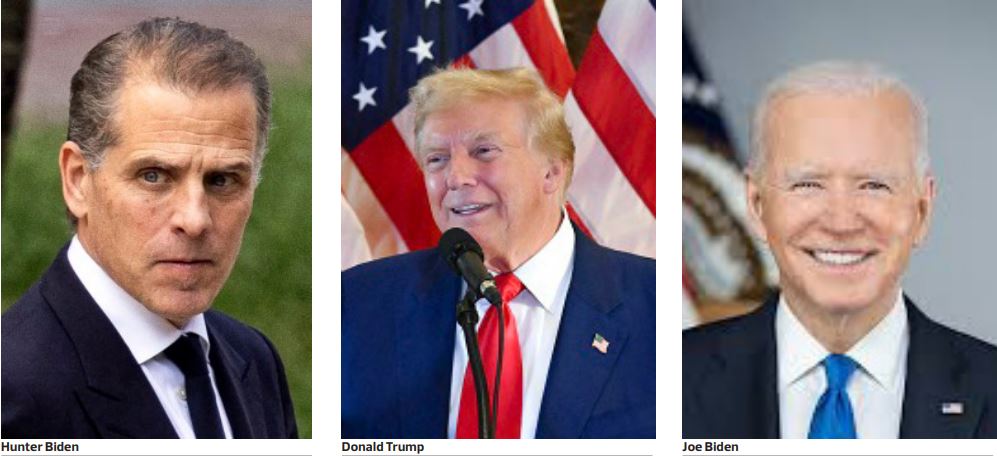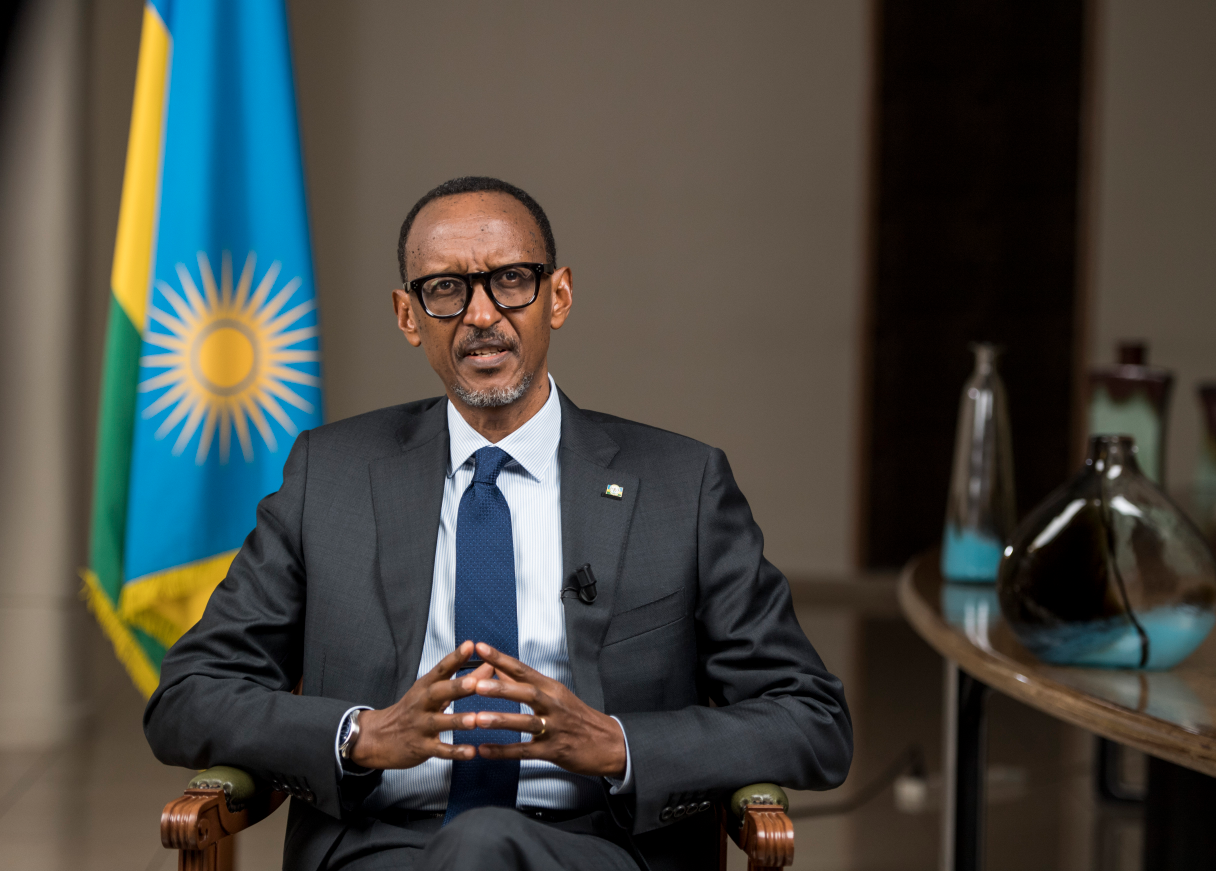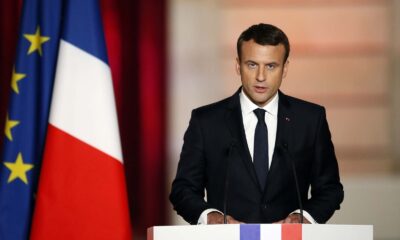News
A Balanced Analysis Of The Hunter Biden And Trump Convictions

The recent convictions of Hunter Biden and Donald Trump have sparked intense debate and scrutiny across the political spectrum. As the dust settles, it’s essential to delve into the facts, examine the evidence, and present a comprehensive analysis of both cases. Hunter Biden, son of former Vice President Joe Biden, was convicted of tax evasion and fraud related to his business dealings in Ukraine. The case centered on Biden’s involvement with Burisma Holdings, a Ukrainian natural gas company, and allegations of influence peddling. The prosecution presented evidence that Biden willfully failed to pay taxes on income earned from Burisma, totaling over $1 million. Additionally, they alleged that Biden used his father’s influence to secure a lucrative position on Burisma’s board, despite lacking relevant experience.
The defense argued that Biden’s actions were legal and that he had relied on professional advice regarding his tax obligations. They also emphasized that Biden’s role at Burisma was focused on corporate governance and transparency, rather than influence peddling. Biden was convicted on multiple counts of tax
evasion and fraud, facing up to five years in prison and a fine of $250,000. His legal team has announced plans to appeal the verdict.
Donald Trump, the 45th President of the United States, was convicted of obstruction of justice and campaign finance violations related to hush-money payments made to adult film star Stormy Daniels and former Playboy model Karen McDougal. The prosecution presented evidence that Trump directed his former attorney, Michael Cohen, to make the payments to silence the women about their alleged affairs with Trump. The payments were made in violation of campaign finance laws, and Trump’s actions were deemed an attempt to influence the 2016 presidential election.
The defense argued that the payments were personal in nature, unrelated to the campaign, and that Trump relied on Cohen’s legal advice. They also claimed that …
The convictions of Hunter Biden and Donald Trump are complex cases with far-reaching implications. As the legal proceedings continue, it’s essential to remain vigilant and ensure that justice is served
the prosecution’s c case relied on circumstantial evidence and lacked direct proof of Trump’s involvement. Trump was convicted on multiple counts of obstruction of justice and campaign finance violations, facing up to four years in prison and a fine of $250,000. His legal team has announced plans to appeal the verdict. Both convictions have significant implications for the individuals involved, the political landscape, and the American public. Hunter Biden’s conviction raises questions about the influence of politics on business dealings and the accountability of public figures. The case has also sparked debate about the role of the media in reporting on political figures’ families. Donald Trump’s conviction has significant implications for his political future and the ongoing investigations into his presidency. The case has also raised concerns about the use of executive power and the rule of law.
The convictions of Hunter Biden and Donald Trump are complex cases with far-reaching implications. As
the legal proceedings continue, it’s essential to remain vigilant and ensure that justice is served.
News
Court, Congress Pile Pressure on DHS Over Minnesota Operations

Court, Congress Pile Pressure on DHS Over Minnesota Operations
US House Democrats have threatened to begin impeachment proceedings against Homeland Security Secretary Kristi Noem over her handling of the immigration crackdown in Minnesota, unless President Donald Trump removes her from office.
House Minority Leader Hakeem Jeffries warned that Democrats could proceed “the easy way or the hard way,” describing the actions of Noem’s department as “disgusting.”
The crisis follows the fatal shooting of US citizen Alex Pretti by a federal agent, which has triggered backlash in Minneapolis and led to the planned departure of Border Patrol Chief Gregory Borvino and some agents from the city.
Trump has deployed his “border tsar,” Tom Homan, to take charge of on-the-ground operations, while a Minnesota judge has ordered acting ICE director Todd Lyons to appear in court over alleged violations of court orders.
Trump has distanced himself from claims by senior adviser Stephen Miller that Pretti was a “would-be assassin,” saying he did not believe the victim was acting as one.
Video footage shows Pretti holding a phone while filming agents, not a gun, although police say he was a legal firearm owner.
News
UN Raises Alarm Over ‘Spare No-One’ Rhetoric by South Sudan Army Chief

UN Raises Alarm Over ‘Spare No-One’ Rhetoric by South Sudan Army Chief
The United Nations has expressed concern after South Sudan’s Deputy Army Chief, Gen. Johnson Oluny, was heard urging troops to “spare no-one,” including children and the elderly, ahead of military operations in opposition-held areas of Jonglei State.
In a video posted on Facebook, Oluny, addressing members of his Agwelek militia, called for total destruction during the deployment.
The UN Mission in South Sudan condemned the remarks, describing them as “utterly abhorrent,” and warned that inflammatory rhetoric targeting civilians must stop immediately.
South Sudan’s government, however, said the statement did not amount to an official order, insisting it remains committed to protecting civilians.
Minister of Information Ateny Wek Ateny said civilians were being warned only to avoid being caught in crossfire.
The development comes amid escalating fighting in Jonglei, where forces loyal to suspended Vice-President Riek Machar have seized several areas.
The military has ordered civilians, UN personnel and aid workers to evacuate three counties—Nyirol, Uror and Akobo—ahead of an imminent operation.
The UN says more than 180,000 people have been displaced by the renewed violence.
Meanwhile, tensions remain high as opposition forces threaten to advance towards the capital, Juba, a claim dismissed by the army.
South Sudan has been unstable since a 2018 peace deal ended a five-year civil war that killed nearly 400,000 people, but lingering political rivalry and ethnic tensions continue to threaten fragile peace.
Diplomacy
Rwanda sues UK over scrapped migrant deal payments

Rwanda sues UK over scrapped migrant deal payments
The Rwandan government has initiated arbitration proceedings against the United Kingdom, seeking payments it says are owed under the now-abandoned asylum partnership agreement between both countries.
Rwanda has filed the case at the Permanent Court of Arbitration (PCA) in The Hague, arguing that the UK failed to honour financial commitments contained in the deal signed under the former Conservative government.
The agreement, designed to relocate some asylum seekers from the UK to Rwanda, was scrapped in 2024 by Prime Minister Sir Keir Starmer, with the Home Office saying about £220m in future payments would no longer be made.
UK authorities insist the policy was costly and ineffective, pledging to defend the case to protect taxpayers’ funds.
Rwanda, however, says the arbitration concerns unmet treaty obligations and is seeking a legal determination of both parties’ rights under international law.
The PCA lists the case as pending, with no timetable yet announced for hearings or a ruling.
-

 Analysis1 day ago
Analysis1 day agoThe Agony of a Columnist, by Alabidun Shuaib AbdulRahman
-

 Analysis4 hours ago
Analysis4 hours agoNow That Nigeria Has a U.S. Ambassador-Designate, by Boniface Ihiasota
-

 Diplomacy4 hours ago
Diplomacy4 hours agoCARICOM Raises Alarm Over Political Crisis in Haiti
-

 News1 day ago
News1 day agoTinubu Unhurt After Brief Stumble at Turkey Reception
-

 News1 day ago
News1 day agoMacron invites Chad’s Déby to Paris amid push to reset ties
-

 News1 day ago
News1 day agoUN Raises Alarm Over ‘Spare No-One’ Rhetoric by South Sudan Army Chief










